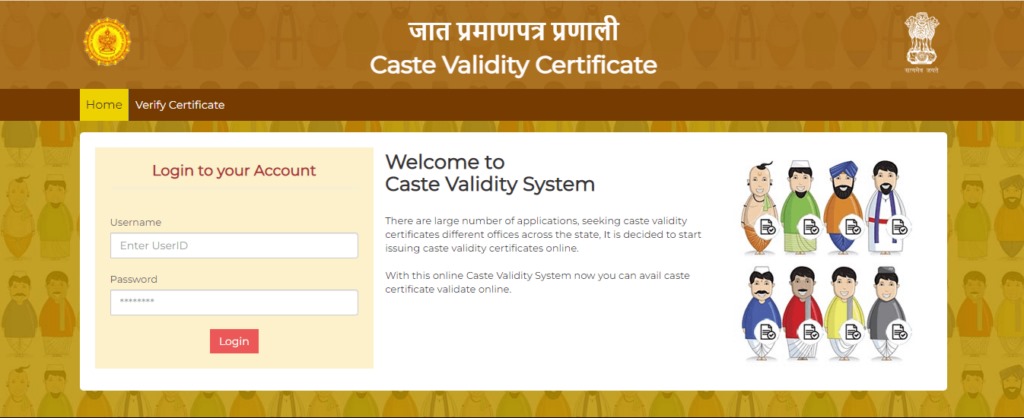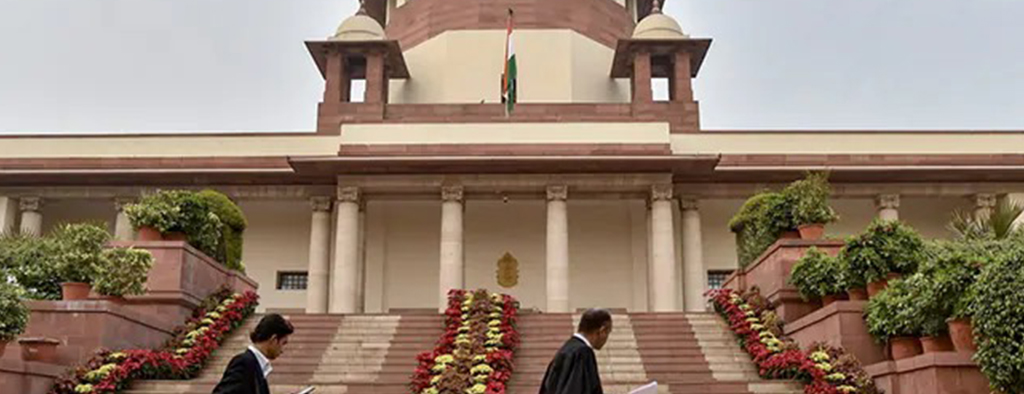According to a ruling by the Supreme Court, Panchayat members in Maharashtra who were elected from seats designated for SC/OBC shall be immediately disqualified if they do not present the Scrutiny Committee’s Validity Certificate for their Caste Certificate within a year of the election. The reason for this is that the Maharashtra Village Panchayats Act 1959’s Section 10-1A is in effect.
The Scheduled Tribes, Scheduled Castes, De-notified Tribes (Vimukta Jatis), Nomadic Tribes, Other Backward Classes, and Special Backward Category of Maharashtra (Regulation of Issuance and Verification of) Caste Certificate Act, 2000 [ “Caste Certificate Act, 2000”]. If someone wants to run from a reserved seat, they must get a Caste Certificate from the appropriate authority. The validity of the Caste Certificate given by the Competent Authority is contingent upon the Scrutiny Committee’s validation and granting of the Validity Certificate. People who want to run for office from reserved seats must present their nomination papers and the Validity Certificate from the Scrutiny Committee in accordance with Section 10-1A of the Panchayats Act. If the widow does not have the Validity Certificate when filing nominations, she has 12 months from the election date to present it, according to this section’s proviso. The clause also says that if the validity certificate is not shown within the allotted 12-month period, “his election shall be deemed to have been terminated retrospectively and he shall be disqualified for being a member.”
The Bombay High Court ruled in Anant H. Ulahalkar & Anr. Vs. Chief Election Commissioner & Ors[2017] that this clause was required. In Shankar S/o Raghunath Devre (Patil) Vs. State of Maharashtra & Others[2019], the Supreme Court affirmed this ruling. As a reserved member, Appellant No. 1 ran in the Gram Panchayat of Village Jambulan elections in the current case. He submitted an application for the Validity Certificate to the Caste Scrutiny Committee on December 30, 2020, the date of his nomination. Appellant No. 1 was proclaimed an elected member following the results of the elections, which were held on January 18, 2021. The last day of the 12-month period was January 20, 2022. Nevertheless, he neglected to present the certificate, which led to his membership being immediately revoked. The appellants filed an appeal with the Supreme Court after the High Court rejected their case.

The Supreme Court ruled that the candidate’s election may be ruled void since he had neglected to present the Validity Certificate. Next, the Maharashtra Temporary Extension of Period for Submitting Validity Certificate (for certain elections to Village Panch The Bombay High Court’s general directions in Mandakani Kachru Kokane alias Mandakani Vishnu Godse Vs State of Maharashtra & Ors mandated that he notify the Scrutiny Committee of the election results within a certain amount of time. The Supreme Court ruled that he was not entitled to protection under the Temporary Extension Acts as, Zilla Parishads, and Panchayat Samitis) Act, 2023, protections, was to be afforded to the candidate. The Bombay High Court’s general directions in Mandakani Kachru Kokane alias Mandakani Vishnu Godse Vs State of Maharashtra & Ors mandated that he notify the Scrutiny Committee of the election results within a certain amount of time. The Supreme Court ruled that he was not entitled to protection under the Temporary Extension Act.
His membership legitimacy was crucially connected to the No Confidence Motion against the Sarpanch (Appellant No. 2). To clarify, in order for a Motion of No Confidence to be approved, at least three-fourths of the members who were eligible to “sit” and “vote” had to support it. Appellant No. 2 could not have been the target of a No Confidence Motion if Appellant No. 1 had the right to “Sit” as a member. Therefore, the Division Bench, which was made up of Justices Vikram Nath and K.V. Vishwanath, decided that Sarpanch was properly the target of a No Confidence Motion. “From those who aspire to contest for a reserved seat and who take a risk of applying for the validity certificate by filing an application before the date of nomination, it is prudent to expect that they will show utmost due diligence in the prosecution of their application. This would mean that they are expected to do all that is within their control to do and submit with the Scrutiny Committee a valid application for their consideration.,” the Court added.
Additionally, the Court observed that Appellant No. 1 did not fulfil all necessary obligations, even though they were clearly within his power. It was noted that on July 10, 2023, the day the Temporary Extension Act went into force, the appellant’s case was still pending. Therefore, the Court believed that granting protection under this provision would allow Appellant No. 1 to profit from his error. Due to the automatic disqualification, the Court determined that Appellant No. 1 is no longer a member in light of this. “The High Court was also justified in directing that the Appellant No.2 should stop exercising the powers as a sarpanch and in further directing that the election for the post of village Sarpanch be notified afresh.,” the Court held in its judgment.


